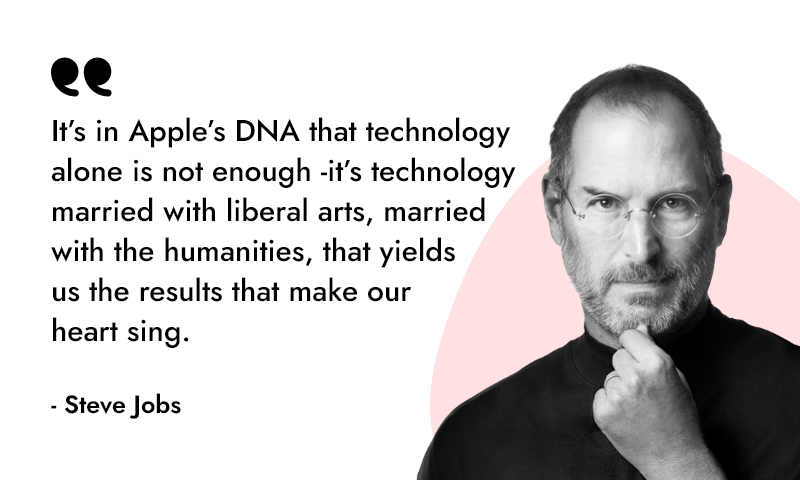When you read or hear the words ‘Liberal Arts’, what’s the first thought that registers in your brain?
- Another fancy word for humanities?
- A non-traditional, or elitist course?
- A non-vocational study that prepares you to be the ‘Jack of All Trades but King of None’?
- All the above?
Unfortunately, that’s the impression of Liberal Arts a majority of students, and especially parents have in India. And yet, the number of colleges offering this program keeps on growing as does students’ interest in pursuing this field of study. Caught between these strange contradictions the questions arise – What exactly is Liberal arts? Why is there a growing buzz about this program? And is this hype worth it?
What Exactly is Liberal Arts?
There’s a German word, ‘Bildung’ that loosely translated means ‘Education’ in English. But the actual meaning is something more profound – It’s what shapes or cultivates the whole personality of a person. This is the best way to understand the philosophy behind Liberal Arts. It is meant to give students a chance to build a well-rounded outlook, broaden their minds, and give them a choice to take up a diverse learning path.
Interested in Liberal Arts? Watch this Webinar to Understand your Career Scope
Why is Liberal Arts Education Catching Fire?
Well…the reason is simple enough.
For too long students have been studying under a rigid curriculum. It doesn’t allow them to gain some breathing space and study what interests them the most. Under the traditional curriculum structure, a student interested in science needs to be good at all sciences. A student pursuing humanities or fine arts should by default be bad at mathematics. Going down this path constricts their minds and puts them in separate impenetrable boxes.
Au contraire, Liberal Arts programs encourage students to think and study outside these boxes. Modern liberal arts courses allow students to take up majors and minors from humanities, social sciences, pure sciences, fine arts, performance arts, and a myriad of interdisciplinary fields of study.
- A student can combine literature with drama or theatre studies, or take up something vocational like marketing, or even mathematics (if that catches their fancy).
- A student of physics can take up study photography or dance alongside their major.
- A student can pursue music and mathematics at the same time. (You should probably know this trivia that most notable musicians in history have also been really good at mathematics and vice versa. Don’t believe me? Check the bios of Bach, Einstein, Brian May of Queen, Johnny Buckland of Coldplay, and countless others)
Is it that hard to imagine a flexible program of study will appeal to students more, especially the new generation of students?
Is Liberal Arts Futuristic or the New Future?
As goes the saying, ‘Don’t Judge a Book by its Cover’; you shouldn’t judge Liberal Arts by these half-baked impressions of it being too fancy or non-traditional. The reality is – Liberal Arts education is critical to the 21st-century global imagination. The education system of the west, especially in the United States has focused on Liberal Arts education to create global leaders to be ‘The Jack of All Trades’.
Why Liberal Arts is Important? Because It Prepares You for a 21st Century Job Role.
According to a report by Institute for the Future and Dell Technologies – 85% of the job roles that are going to be popular in 2030, hasn’t yet been invented. And this is because:
- Automation is rapidly changing the workforce requirements. This means many of the traditional job roles are either transforming or vanishing altogether.
- Job roles are getting more and more interdisciplinary. Think about it – a decade or so ago, technology and finance were two separate worlds. Today, there’s a convergence of both worlds in form of FinTech. One can’t operate without the other and there’s no going back.
Daniel Pink, the NY Times bestselling author, has coined a concept called ‘Conceptual Age’ in his book – The Whole New Mind. According to Pink, in this post-globalization, post-internet, post-social media age, it is not enough just to have the knowledge or information to succeed in life or business. What matters is how an idea is executed so that it encompasses both information and creativity.
Today, most companies look for employees who are not just good at their own craft but display qualities like critical and rational thinking, problem-solving, leadership, and emotional intelligence. And that is exactly what Liberal Arts education offers.
“I’ve seen many an actuary and many an engineer who are brilliant, but they fail in their ability to communicate or commercialize an idea because they can’t relate to the people they’re dealing with. The major I’m less concerned about; it’s the set of skills that people come into work with.”
— Mark Bertolini, CEO of Aetna, Inc. (Wall Street Journal, 10 June 2013)
Students of Liberal Arts have a distinct advantage. Their abilities aren’t limited to their focused area of study. Rather they learn how to think critically, how to resolve a crisis, how to communicate their ideas, and most important of all, how to become a leader.
So it is high time that we get over our aversion to Liberal Arts. Because believe it or not, education in India needs this rejuvenation that only liberal arts can provide.
If you are interested in pursuing Liberal Arts and want to know how to choose the right course, college, and career, please feel free to reach out to us at guideme@univariety.com
Interact with our expert counsellors to make the right career choice.
Payal is an avid reader and compulsive writer who thinks being able to pen words is her primary life skill. She loves giving her blogs a quirky spin that sets them apart from the rest. After all, who would mind a bit of Sherlock or Jack Sparrow in a blog on career counselling!



